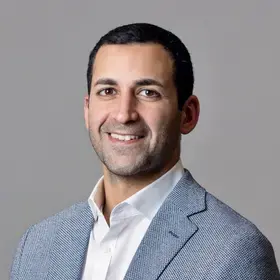Jason L. Thom sees himself as a problem solver and a strategic advisor to executives. While working as a senior consultant at IBM - Global Business Services, where he advised Fortune 500 companies on strategic enterprise-wide transformation initiatives, he enrolled in the master’s program in Information and Knowledge Strategy (IKNS).
Thanks to his training in the IKNS program, he led a successful knowledge strategy project at IBM. Upon graduating from Columbia in 2015, he landed three job offers; one from Ernst & Young, another from Deloitte, and one from CA Technologies. He ultimately joined CA Technologies, a software and solutions company based in New York City, where he works as a senior associate within a corporate strategy team.
We spoke with Jason about his career, his experience in the program, and his new role in corporate strategy.
Why did you enroll in IKNS?
For the longest time, I was considering an M.B.A., but while I was an undergraduate at Carnegie Mellon University, I knew someone who was taking the IKNS program, and he would post pictures on social media with his cohort and saying what a great program it is. I was curious about it; the program taught strategy and management, which I didn’t know much about at the time. I just reached out to him: "Hey, can you explain to me what this program is about?"
It was a master’s program at Columbia, it was recommended by a friend, and it was more affordable than an M.B.A. Those were a few reasons that I enrolled in the program.
How would you describe the field of knowledge management, having graduated from this master’s program?
To me, knowledge management is the intersection of information management, collective collaboration, and strategy. I think the program is very practical and hands-on versus other degrees that are more theory-based.
How did you apply your knowledge from the program at your organization?
I was a full-time management consultant at IBM at the time. Within IBM, we have a very large big data practice. Within the company, there are many different applications and platforms and systems where we manage data and store information. We had a very outdated big data platform, so the wiki pages were not being utilized to their fullest potential.
Because IBM was interested in the big data space and working on networks, I reached out to one of their global big data partners and said that I saw some opportunity gaps in their knowledge sharing. He said, "Oh, I see you're pursuing a master’s program in knowledge strategy. Why don't you take the lead and tell me what we should include in our platform?" I took the initiative, produced a knowledge audit, and worked with some people offshore to figure out what the existing problems were.
Because of the project I led, we were able to improve our knowledge sharing across the organization. That's a project I most likely wouldn't have done if I hadn’t learned about knowledge management. I was able to add value to my organization immediately.
What do you do in your new role?
CA Technologies provides IT management solutions that help customers manage and secure very complex IT environments to support their business services.
I’m in a management consulting role, working as an internal consultant within the corporate strategies team. Typically, we engage with senior leaders across the company to try to assess any challenges, so depending on the nature of the problem, we might be in a unique working environment.
The most recent project I'm working on is a customer attrition project. We're trying to figure out, within our enterprise solution portfolio, why our CA account customers are not renewing our software licenses. As with most management consulting roles, I define a problem, frame the issue, and bring some analysis – both quantitative and qualitative – to get to the bottom of the problem.
Our end goal is to provide either short-term or long-term strategic recommendations to the executives so that they can make better decisions and determine the strategic position of how they should actually grow the business. What’s great about this role is that you get to see how your strategy and recommendations are successfully implemented in an organization.
Why did you choose this career?
I think of myself as a problem solver, and I like being able to provide analysis that helps executives make better decisions.


